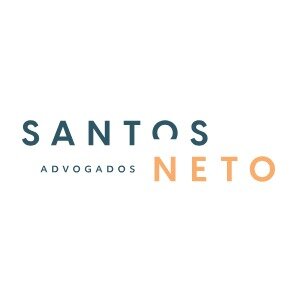Best Sanctions & Export Controls Lawyers in São Paulo
Share your needs with us, get contacted by law firms.
Free. Takes 2 min.
List of the best lawyers in São Paulo, Brazil
About Sanctions & Export Controls Law in São Paulo, Brazil
Sanctions and export controls are crucial aspects of Brazilian law that regulate the international movement of goods, services, and technology to and from Brazil, including the state of São Paulo. These legal frameworks are designed to ensure that companies and individuals comply with international treaties, United Nations resolutions, and domestic legislation governing trade with specific countries, organizations, or individuals. In São Paulo, which is a major financial and industrial hub, adherence to these laws is vital for maintaining lawful international business activities and avoiding severe legal consequences.
Why You May Need a Lawyer
There are several situations in which individuals or businesses may require the support of a lawyer specialized in sanctions and export controls in São Paulo. Some common scenarios include:
- Exportation or importation of goods and services that may fall under trade restrictions
- Engagement in cross-border transactions with countries or entities subject to sanctions or embargoes
- Due diligence procedures for mergers, acquisitions, or investments with foreign elements
- Receiving notifications or warnings from government authorities regarding breaches of export control laws
- Needing to apply for specific licenses or authorizations for sensitive goods and technologies
- Facing criminal or civil investigations linked to sanctions violations
- Seeking guidance on compliance programs to prevent inadvertent legal violations
Local Laws Overview
Brazilian law, including that enforced in São Paulo, establishes a framework for sanctions and export controls through various federal statutes and international commitments. The principal regulations include the Brazilian Export Control System (Siscomex), the Law of Criminal Organizations, anti-corruption laws, and adherence to United Nations and Mercosur sanctions. Brazilian authorities, such as Receita Federal (Federal Revenue Service) and BACEN (Central Bank of Brazil), play significant roles in monitoring and enforcing these laws.
Key aspects relevant to São Paulo include:
- Mandatory registration of export activities in customized government systems
- Controls over dual-use goods and strategic items, including technology transfers
- Strict enforcement against dealings with sanctioned entities, including asset freezes and transactional prohibitions
- Severe penalties for violations, ranging from heavy fines to criminal prosecution
- Compliance expectations for local companies engaging in international business, particularly in the financial, defense, and technology sectors
Frequently Asked Questions
What are sanctions and export controls?
Sanctions are legal measures restricting or prohibiting trade with certain countries, entities, or individuals based on international or domestic law. Export controls are regulations that govern the export of specific goods, services, and technologies to ensure national security and compliance with international obligations.
Who enforces sanctions and export controls in São Paulo?
Sanctions and export controls are enforced at the federal level by authorities such as the Receita Federal, BACEN, and Ministério das Relações Exteriores, but local agencies in São Paulo, like the Polícia Federal, also cooperate in investigations and enforcement.
Do Brazilian laws comply with international sanctions?
Yes, Brazil implements United Nations sanctions and may adhere to additional restrictions through Mercosur, though it does not automatically follow all US or EU sanctions regimes unless incorporated into domestic law.
Which items are subject to export controls in Brazil?
Items subject to controls include weapons, dual-use goods (items with civilian and military applications), advanced technologies, and certain chemicals or biological materials. The full list is maintained by government authorities.
Can I apply for an export license in São Paulo?
Yes, export licenses are typically managed through federal channels but can be facilitated locally with the help of licensed customs brokers and attorneys experienced in the São Paulo region.
What are the penalties for violating sanctions or export control laws?
Penalties range from administrative fines, loss of export privileges, and seizure of goods to criminal charges resulting in imprisonment, depending on the nature and severity of the violation.
Are financial services affected by export controls?
Yes, financial institutions must comply with sanctions lists, conduct due diligence on clients and transactions, and may need to block assets or report suspicious activities related to export control breaches.
How can businesses in São Paulo ensure compliance?
Businesses should implement robust internal compliance programs, conduct regular training, screen customers and partners against sanctions lists, and seek legal counsel to interpret complex regulations.
What should I do if I receive a government inquiry about sanctions?
You should consult a lawyer immediately to understand the scope of the inquiry, preserve relevant documents, and respond appropriately to authorities to mitigate risks and potential liabilities.
Is technology transfer regulated under export controls in Brazil?
Yes, the transfer of certain technologies, such as encryption software or high-tech equipment, may be subject to export controls and require specific licenses from Brazilian authorities.
Additional Resources
Several resources can assist individuals and businesses seeking information and guidance on sanctions and export controls in São Paulo:
- Receita Federal do Brasil - Federal Revenue Service provides guidelines and manages export/import registration
- Ministério das Relações Exteriores - Offers information on international treaties and sanctions regimes
- Banco Central do Brasil (BACEN) - Regulates financial transactions and enforces financial sanctions
- Polícia Federal - Investigates criminal violations concerning export controls and sanctions
- Siscomex - The official Brazilian Export Control System for registration and licensing
- Commercial and Industry Associations in São Paulo - Such as FIESP (Federação das Indústrias do Estado de São Paulo) which can provide additional guidance and resources
Next Steps
If you believe you require legal assistance with a sanctions or export controls matter in São Paulo, consider the following steps:
- Collect all relevant documentation, including contracts, licenses, correspondence, and regulatory notices
- Identify the specific issue or concern, such as a pending transaction, government inquiry, or internal compliance question
- Consult a licensed attorney in São Paulo with experience in international trade, sanctions, and export controls
- Discuss your situation openly and provide all necessary information to facilitate an accurate legal analysis
- Follow your lawyer’s advice for responding to authorities, applying for licenses, or implementing compliance programs
- Stay informed about changes in relevant laws and regulations to ensure ongoing compliance and risk management
Prompt action and professional guidance can help mitigate legal risks and facilitate smooth international business operations in São Paulo.
Lawzana helps you find the best lawyers and law firms in São Paulo through a curated and pre-screened list of qualified legal professionals. Our platform offers rankings and detailed profiles of attorneys and law firms, allowing you to compare based on practice areas, including Sanctions & Export Controls, experience, and client feedback.
Each profile includes a description of the firm's areas of practice, client reviews, team members and partners, year of establishment, spoken languages, office locations, contact information, social media presence, and any published articles or resources. Most firms on our platform speak English and are experienced in both local and international legal matters.
Get a quote from top-rated law firms in São Paulo, Brazil — quickly, securely, and without unnecessary hassle.
Disclaimer:
The information provided on this page is for general informational purposes only and does not constitute legal advice. While we strive to ensure the accuracy and relevance of the content, legal information may change over time, and interpretations of the law can vary. You should always consult with a qualified legal professional for advice specific to your situation.
We disclaim all liability for actions taken or not taken based on the content of this page. If you believe any information is incorrect or outdated, please contact us, and we will review and update it where appropriate.

















